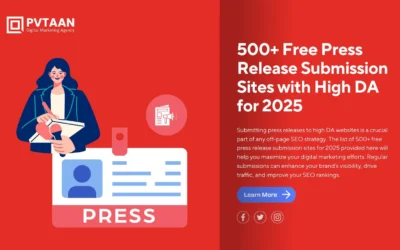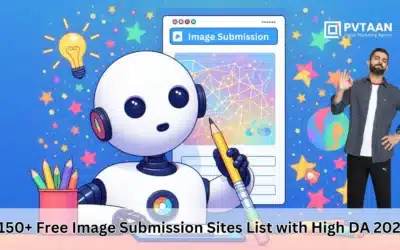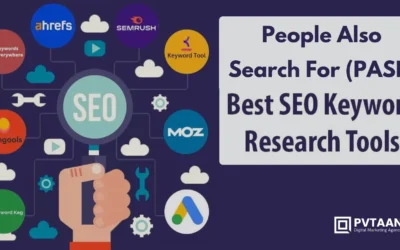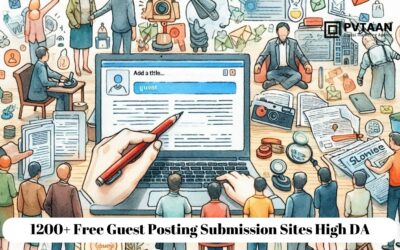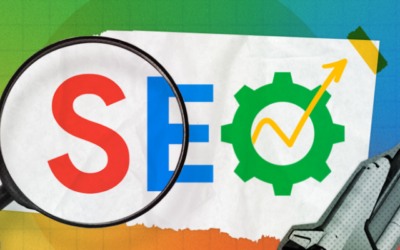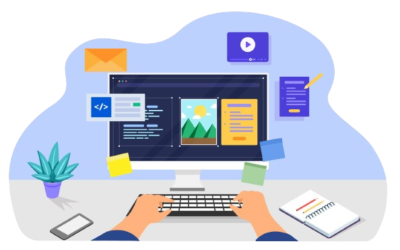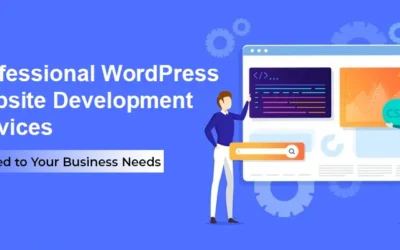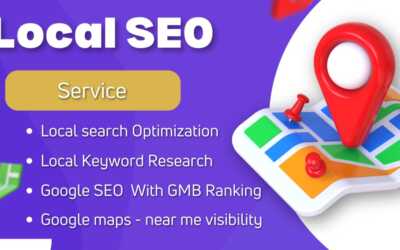Artificial Intelligence Pros and Cons: Understanding the Advantages and Disadvantages of AI
Explore the transformative potential of artificial intelligence (AI) in the marketing landscape. AI is not only revolutionizing industries but also enhancing decision-making processes, fundamentally changing the way we work. In this blog post, we delve into the key pros and cons of AI, providing you with the insights needed to navigate its impact and prepare for the future.
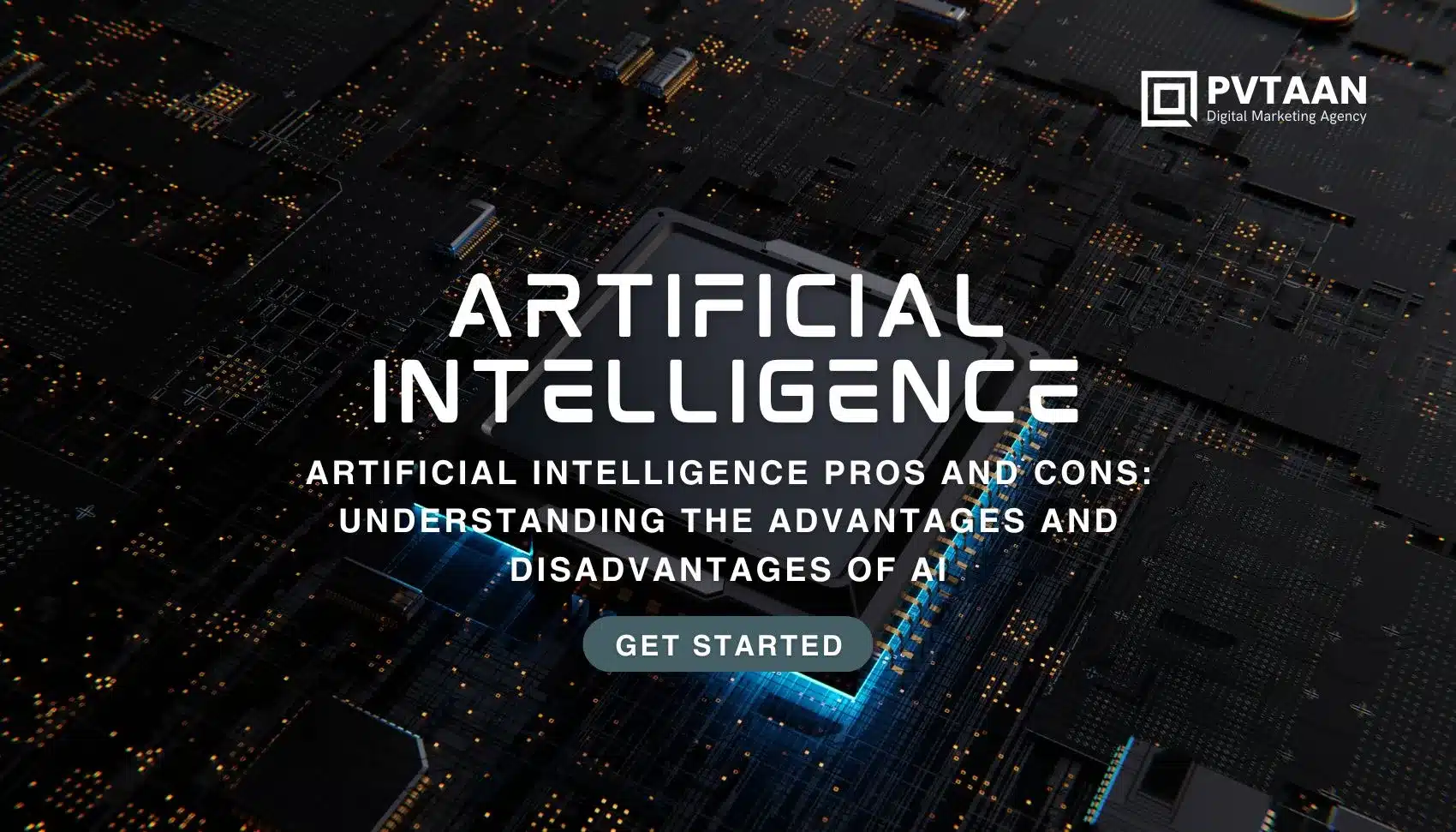
Whether you’re excited, curious, or apprehensive about the rise of artificial intelligence (AI), there’s no denying its growing presence across various sectors, including marketing.
As a rapidly advancing technology, AI is already playing a crucial role in fields such as medicine, science, engineering, advertising, and data analysis.
Consider how you’re already benefiting from AI through tools like Alexa, Siri, Cortana, and Google Assistant—this is just the beginning.
With the ability to expand capabilities, learn from diverse inputs, and respond in increasingly human-like ways, AI is transforming how we interact with technology.
While opinions may differ on the advantages and disadvantages of AI, its continued integration into our lives is inevitable. Gaining a deeper understanding of AI will empower you to leverage its potential, whether now or in the near future.
In this blog post, we’ll explore the pros and cons of artificial intelligence, but first, let’s break down how AI actually works.
- How Does Artificial Intelligence Work?
- 17 Pros of Artificial Intelligence (AI)
- 17 Cons of Artificial Intelligence (AI)
- Balancing the Benefits and Drawbacks of Artificial Intelligence (AI): A Comprehensive Overview
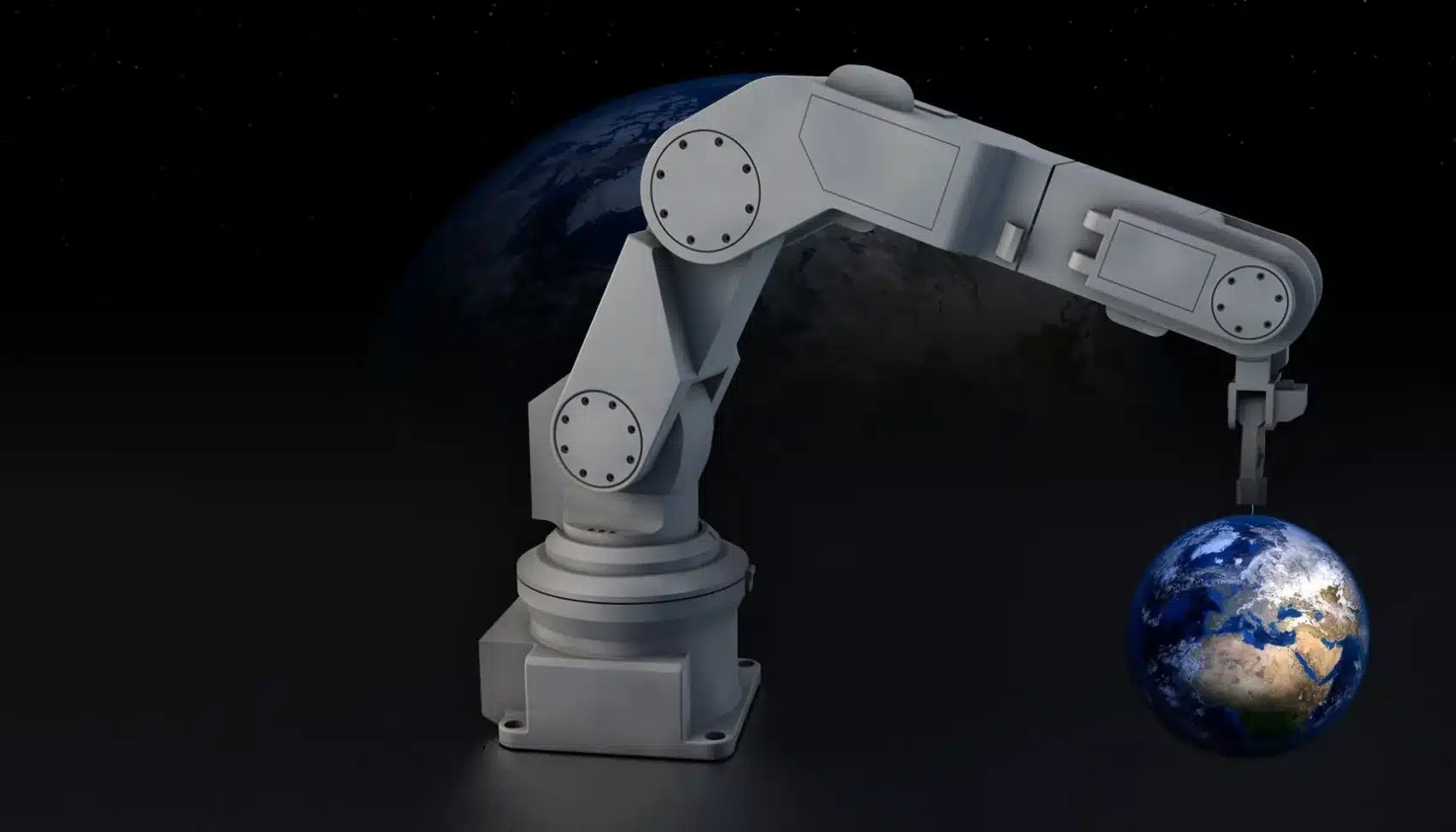
How Does Artificial Intelligence Work?
No longer confined to the realm of science fiction, machines equipped with artificial intelligence (AI) are now performing tasks once exclusive to the human brain.
At its core, AI enables a computer to learn and make decisions (almost) autonomously. While AI can be trained to process and analyze data, it doesn’t replicate the full cognitive abilities of the human mind.
So, how does AI actually work?
The process begins with designing AI to achieve a specific goal. The AI is then trained using available data, learning how to best accomplish its objective.
Once it reaches a certain level of proficiency, the AI begins to handle data independently. After analyzing the data, it makes predictions based on its findings.
As the AI continues to learn, it refines its approach, effectively becoming “smarter” over time.
This continual learning process can lead to significant improvements, though it also presents potential risks. However, today, AI offers a range of advantages and disadvantages that you and your organization should be aware of.
While AI continues to evolve, driving efficiencies in many areas, it’s crucial to recognize the irreplaceable value of human creativity and judgment. As Ankit Mishra, VP of Marketing at Pvtaan, aptly puts it: “At Pvtaan, we believe that AI can make our marketplace smarter and more efficient—while still relying on human creativity to produce the most captivating content.”
17 Pros of Artificial Intelligence (AI)
AI applications are poised to revolutionize industries and sectors in profound ways. Here are 17 advantages that AI offers:
- Diminishes Human Error
AI reduces human error by relying on data-driven algorithms. With proper programming, AI systems can increase accuracy and precision, though they are still susceptible to limitations and biases. - Facilitates Faster Decision-Making
AI accelerates decision-making processes by analyzing data and providing insights faster than humans, improving efficiency and allowing for quicker responses to dynamic situations. - Offers Continual 24/7 Availability
Unlike humans, AI can operate continuously without rest, enhancing productivity. However, AI systems still require maintenance and updates to ensure optimal performance. - Lessens Risk
AI can undertake hazardous tasks that would be dangerous for humans, such as deep-sea exploration, bomb defusal, and mining, thus minimizing risks in high-stakes environments. - Automates Repetitive Tasks
AI excels at automating repetitive tasks, allowing humans to focus on more creative and strategic activities, thereby increasing overall productivity. - Provides Digital Assistants
AI-powered digital assistants, like chatbots and voice bots, improve customer service by handling inquiries efficiently, reducing the need for extensive customer support teams. - Identifies Patterns
AI can swiftly identify patterns in large datasets, aiding in faster and more accurate predictions, which is particularly beneficial in marketing and data analysis. - Enhances Human Workflows
AI optimizes workflows by integrating with human efforts, improving efficiency and productivity while transforming traditional work processes. - Excels at Managing Large Data Sets
AI can process and analyze vast amounts of data quickly, providing valuable insights and facilitating better decision-making across various domains. - Supports Personalization
AI enables personalized experiences by analyzing individual preferences and behaviors, which is especially valuable in marketing and customer service. - Improves Predictive Analytics
AI enhances predictive analytics by accurately forecasting trends and outcomes, helping businesses to strategize effectively and stay ahead of the competition. - Streamlines Operations
AI optimizes operations by automating routine processes, reducing operational costs, and increasing overall efficiency. - Boosts Productivity
By handling mundane tasks, AI allows human workers to focus on higher-value activities, leading to increased productivity and innovation. - Enables Continuous Learning
AI systems learn from data over time, continuously improving their performance and adapting to new information, which leads to more accurate and reliable outputs. - Enhances Customer Experience
AI-powered tools can provide instant responses and solutions to customer queries, leading to higher customer satisfaction and loyalty. - Supports Innovation
AI fosters innovation by automating research and development processes, enabling faster experimentation and bringing new products and services to market more quickly. - Facilitates Remote Work
AI tools support remote work by automating tasks, facilitating communication, and enabling collaboration across different time zones and locations.

17 Cons of Artificial Intelligence (AI)
While AI offers numerous benefits, it also presents several challenges and drawbacks. Here are 17 disadvantages of AI:
- Reduces Employment
AI’s automation of repetitive tasks can lead to job displacement, as traditional roles are phased out, causing unemployment in certain sectors. - Lacks Creative Ability
AI struggles with creativity and innovation, relying on existing data and patterns rather than original thought, which limits its usefulness in fields that require creative thinking. - Absence of Emotional Intelligence
AI systems lack emotional intelligence, making them incapable of understanding or responding to human emotions, which is crucial in areas like customer service and human resources. - Ethical Dilemmas
AI systems may perpetuate biases inherent in their training data, leading to discriminatory outcomes. This raises significant ethical concerns, particularly in decision-making processes. - Increases Potential for Human Laziness
Overreliance on AI can lead to reduced human engagement in critical thinking and problem-solving, potentially fostering a culture of laziness. - Privacy and Data Security Concerns
AI systems often require large amounts of personal data, raising concerns about data privacy, potential breaches, and misuse of sensitive information. - Lack of Transparency and Explainability
Many AI algorithms, especially in deep learning, function as “black boxes,” making it difficult to understand how they arrive at certain decisions, which complicates accountability and trust. - Dependency and Reliability
Increasing reliance on AI for critical tasks can be risky, as system failures or malfunctions can lead to significant disruptions, emphasizing the need for robust backup systems. - High Implementation Costs
Developing and deploying AI systems can be expensive, requiring significant investment in technology, infrastructure, and skilled personnel, which may not be feasible for all organizations. - Limited Flexibility
AI systems are often designed for specific tasks and lack the flexibility to adapt to new or unforeseen challenges without extensive reprogramming. - Potential for Bias
AI systems can inadvertently perpetuate biases present in their training data, leading to unfair or biased outcomes, particularly in areas like hiring, lending, and law enforcement. - Complexity in Integration
Integrating AI into existing systems can be complex and time-consuming, requiring significant adjustments and potentially causing temporary disruptions. - Risk of Over-Automatization
Excessive automation through AI can lead to a loss of human oversight, potentially resulting in errors or unintended consequences that might have been avoided with human intervention. - Environmental Impact
AI technologies, especially those involving large-scale data processing, can have a significant environmental impact due to high energy consumption. - Security Vulnerabilities
AI systems can be vulnerable to cyberattacks, including data manipulation and adversarial attacks, which can compromise their reliability and safety. - Diminished Human Interaction
As AI takes over more tasks, there is a risk of reduced human interaction, which can negatively impact collaboration, communication, and overall workplace culture. - Challenges in Regulation and Governance
The rapid advancement of AI technology outpaces existing regulatory frameworks, creating challenges in establishing effective governance and ensuring that AI is used responsibly.
Balancing the Benefits and Drawbacks of Artificial Intelligence (AI): A Comprehensive Overview
Artificial intelligence (AI) is a powerful tool with the potential to transform industries, enhance efficiency, and drive innovation. Its ability to reduce human error, automate repetitive tasks, and analyze vast amounts of data positions AI as a game-changer in today’s rapidly evolving landscape.
However, the adoption of AI also comes with significant challenges. From ethical dilemmas and job displacement to privacy concerns and the risk of over-dependence, the disadvantages of AI cannot be overlooked. The lack of emotional intelligence, creativity, and transparency in AI systems further complicates its integration into areas that require nuanced decision-making.
As organizations consider implementing AI, it’s crucial to weigh these pros and cons carefully. Understanding both the benefits and the limitations of AI will allow businesses to leverage its strengths while mitigating potential risks. Ultimately, the key lies in finding a balanced approach—one that harnesses AI’s capabilities to drive progress while maintaining the indispensable value of human input and oversight.






